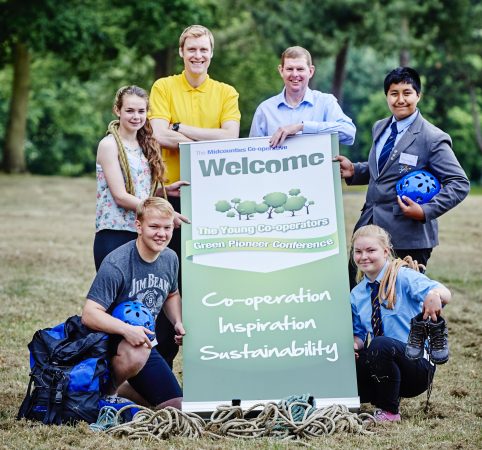The Midcounties Co-operative is saving more than £1m a year through sustainability measures.
The society, which operates more than 500 sites ranging from convenience stores to large supermarkets, set up an environmental steering group eight years ago to deliver green objectives.
The environmental steering group, which includes workers from across the business, board members and regular members, develops and shapes the society’s environmental strategy, and sets measures and targets for the co-op.
But, he argues, Midcounties’ approach is different because it places a strong emphasis on colleague engagement and awareness.
“As a co-operative, social responsibility is fundamental,” he said. “It is the pillar of our core values and principles and it really helps the society to fulfil its mission to build a better world. It’s what we do as a co-op.”
Related: How the Co-op Group is cutting waste through the ‘circular economy’
Midcounties’ experience shows there is also a strong business case for being sustainable. The co-op has not only made savings, but also increased overall colleague engagement across the business from a score of 81 in 2015 to 82 in 2016.
Higher levels of colleague engagement are also beneficial for the business, being a good indicator of reduced colleague turnover.
“In 2016 we had a target of 3% reduction in energy by the end of year,” said Mr Pickering. “For recycling measure, the total waste produced that is recycled, in 2016 the target was to achieve 90% recycling rates.
“We also have a long-term target to improve overall energy efficiency of the business by 20% by 2026 – 2015 is the benchmark for that.”
“This year we achieved a 4% reduction compared to the previous year – 1,000 tonnes of CO2 overall saved. To put it into a broader perspective, we have reduced energy usage by 15% since 2010.
“We have increased recycling levels to 91% compared to 21% in 2009. This equates to 3,000 tonnes of waste being diverted from landfill per annum.”
The society’s recycling target for 2017 is 95%. Food waste goes to anaerobic digestion which provides enough energy to power 40 homes per annum.
Related: Customers prefer shopping with businesses who pay tax fairly
“Regarding waste reduction, we reduced the total amount of waste produced to 3,600 tonnes compared to 5,500 in 2013,” said Mr Pickering. “The results from this year give us leverage to continue to focus on energy saving and recycling.
“We will be building on this through the environmental steering group, also looking to involve members further in the sustainability programme, going beyond operational activity. We are also looking at inspiring the next generation on the importance of sustainability.”

Working with the Outward Bound Trust, the co-op is running the Green Pioneer Programme to increase sustainability awareness and teach young people about the part they can play in protecting the environment. So far 131 young people have completed the programme across partner schools. “We are looking to build on that,” said Mr Pickering.
Asked what achievement the society was most proud of, Mr Pickering said the longevity of the progress was the biggest success. “We are most proud of our year-on-year improvement and the accreditation that comes with it. This enabled us to achieve the Queen’s Award for Enterprise for Sustainable Development in 2015.”
Midcounties measures progress through the society’s Steering Wheel, which was created to assess performance in the key areas of co-operation, people, customers, delivery and finance.
“Within this Steering Wheel we have energy saving and recycling targets, ensuring that all areas of the businesses are targeted and measured against these areas,” said Mr Pickering.
The society achieved re-accreditation for Business in the Community’s Responsible business awards for Sustainable Products and Services in 2016 in recognition for its year-on-year sustainability progress.

